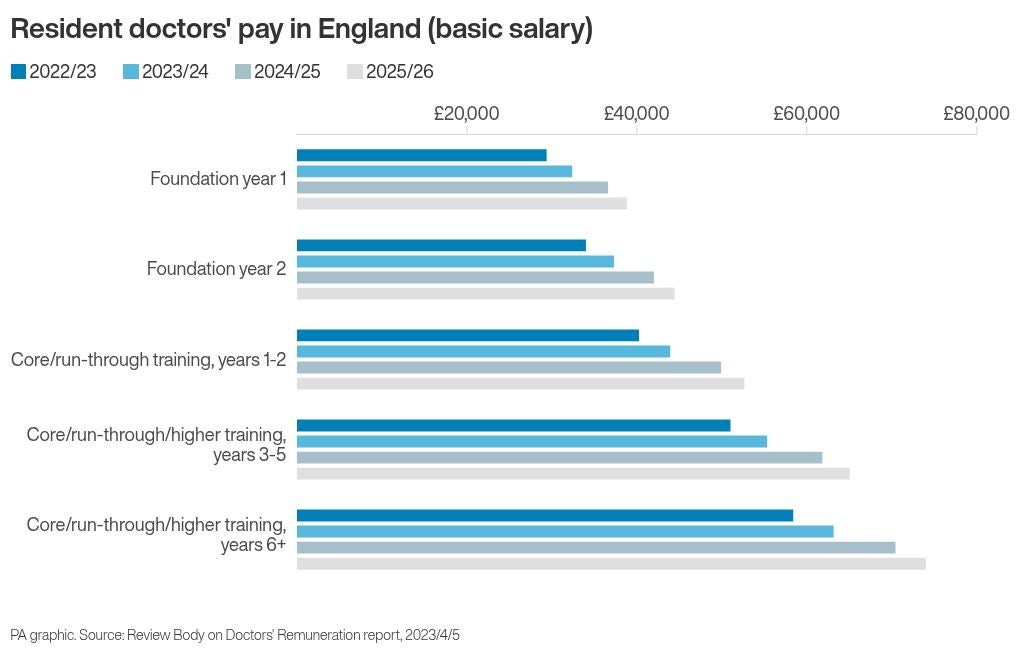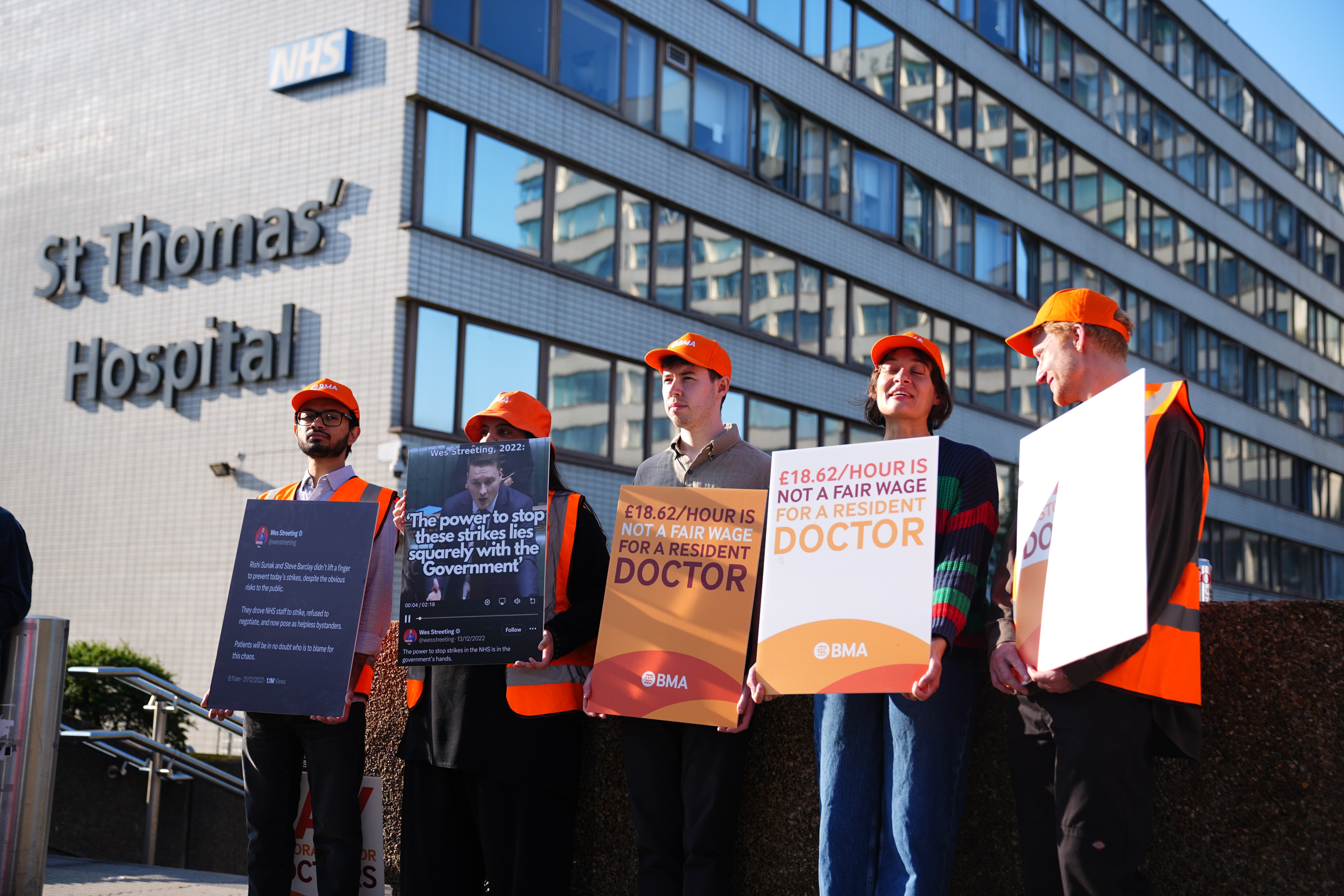Wes Streeting has accused the British Medical Association (BMA) leaders of trying to “hold the country to ransom” as junior doctors began five days of strike action.
The health secretary also condemned the industrial action as “reckless” and said ministers were doing everything they could to minimise patient harm.
His comments came as it emerged that the hospital where one of the BMA leaders works has had to call a doctor off the picket line because of a risk to babies’ lives.
The industrial action began at 7am on Friday, with BMA members manning picket lines across the country.
Mr Streeting said NHS staff had cancelled leave and some junior doctors were “themselves ignoring their union to be there for patients. I’m extremely grateful to all of them.”

But he said he could not guarantee there would be no disruption and no risk of harm to patients.
He said the BMA’s action was “irresponsible”, adding: “They had a 28.9 per cent pay award from this government in our first year, there was also an offer to work with them on other things that affect resident doctors’ working lives – and that’s why I think this is such reckless action.”
He added: “This government will not allow the BMA to hold the country to ransom”.
He also said the public and other NHS staff “cannot understand why the BMA has chosen to embark on this totally unnecessary, reckless strike action”.

NHS chief executive Sir Jim Mackey said that for this strike, the health service wanted to cancel fewer operations in a bid to focus on emergency care.
But he admitted that “in the end, capacity will have to be constrained by the numbers of people we’ve actually got who do just turn up for work”.
He also said further strikes were “possible” but added: “I would hope not”.
Sir Keir Starmer made a last-minute appeal to resident doctors, saying the strikes would “cause real damage” as well as threaten to turn back the clock “on progress we have made in rebuilding the NHS over the last year, choking off the recovery”.
Before the strike began, Mr Streeting instructed hospitals to minimise disruption to appointments as safely as possible, as striking doctors had to feel the “pain” of taking industrial action.
In a transcript seen and reported by The Telegraph, Mr Streeting told NHS leaders: “It is really important that these strikes are not pain-free for resident doctors or the BMA, because otherwise we will see broader contagion across the BMA and potentially broader contagion across the public sector.”

The BMA has reached an agreement with Nottingham City Hospital that a doctor can be exempted from the strikes to work on the neonatal intensive care unit this weekend to ensure the ward has enough doctors to look after “very sick babies,” Dr Melissa Ryan told The Times.
Hospitals are encouraged to look for “derogations” from strike action, where junior doctors can be pulled off the picket line if patient safety is at risk.
Dr Ryan said: “I do know that we’ve granted a derogation already. It is actually at my work, with the babies on one of the neonatal units I work on. That is because it is an intensive care unit for babies … We don’t have enough senior staff to cover the doctors that aren’t there. And actually, it is important to us that those very sick babies get a lot of care.”
The BMA argues that real-terms pay has fallen by around 20 per cent since 2008 and is pushing for full “pay restoration”.
The union took out national newspaper adverts on Friday, saying that a “newly qualified doctor with years of medical school experience is on just £18.62 per hour”.







